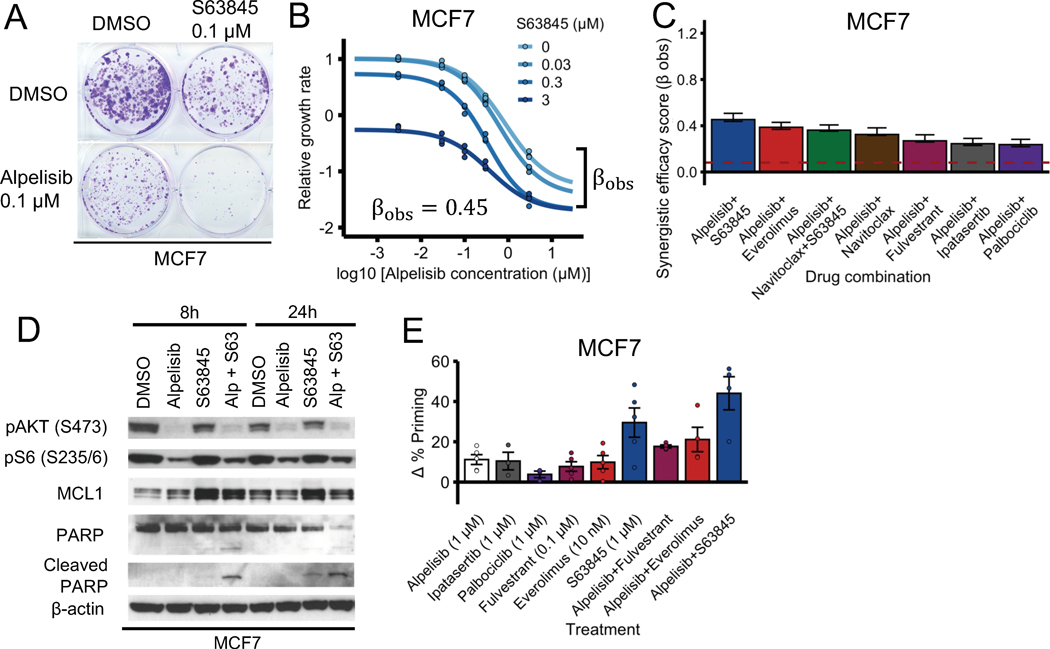Fig. 2. PI3Kα inhibitors and MCL1 inhibitors are a synergistically efficacious combination and induce apoptosis in MCF7.
(A, B) PI3Kα inhibitor alpelisib and MCL1 inhibitor s63845 is an effective and synergistically efficacious drug combination. MCF7 cells were treated with alpelisib, s63845, and their combination. For panel A, cells a colony formation assay was performed after 18 days of drug treatment. For panel B, CellTiter-Glo assay was performed before drug treatment and after 6 days of drug treatment to measure cell viability. The relative growth rate is calculated with respect to the DMSO control treatment using cell viability. Efficacy scores are such that means synergistic behavior and means antagonistic behavior. (C) The combination of alpelisib and s63845 is equally synergistically efficacious (or more) than clinically relevant drugs like fulvestrant, everolimus, and palbociclib. The dotted red line () is the null-hypothesis synergy score value expected from doubling the alpelisib combination (i.e., a combination of alpelisib with itself). Experiments were done and synergy scores were calculated as in panel B. (D) Combined alpelisib (0.1 μM) and s63845 (0.1 μM) result in an increase in apoptosis (as measured by cleaved PARP levels) compared to each separate drug. (E) The combination of alpelisib with s63845 results in an increased apoptosis priming compared to the combination with clinically relevant drugs like fulvestrant and everolimus. Δ% apoptosis priming for a treatment was measured using dynamic BH3 profiling by comparing treated vs untreated cells after 16 h under increased concentration of BIM peptide.

